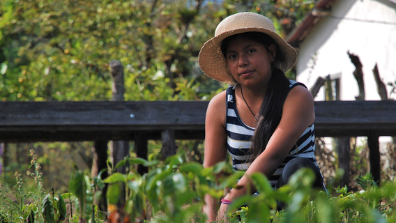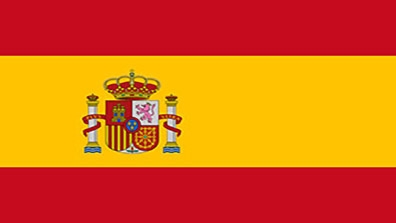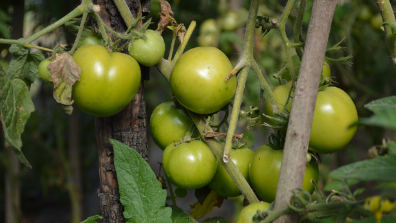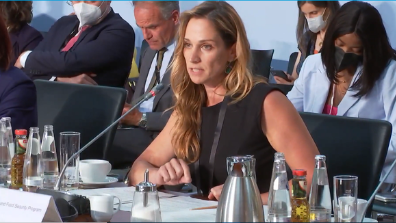Originally published on the IFC website.
When the COVID-19 pandemic broke out in Honduras, Alfredo, Carlos, and Javier imagined the worst was to come. The pandemic-related restrictions and security measures were making it increasingly difficult to obtain the inputs required to work their land, discouraging many farmers like them from continuing to grow crops.
Agriculture, a key economic activity in Honduras, faces major challenges. Amid the health crisis, workers in the agricultural sector also suffered the devastating effects of climate change, as well as having to cope with the high cost of seeds, fertilizers, and other inputs needed for producing food. To make things worse, farmers were also hampered by difficult access to the credit they needed to survive the pandemic.
Notwithstanding these drawbacks, Alfredo, Carlos, and Javier’s passion for farming not only enabled them to stay afloat during the pandemic, but also to improve their plots where they grow bananas, maize, and watermelons. Alfredo, for example, was able to save a substantial amount of water by installing a drip irrigation system. Meanwhile, Carlos planned to expand his cultivated area, and Javier managed to build a tank to preserve water in preparation for the dry season. Thus, despite the overall negative impact of the pandemic on agriculture, these three small-scale farmers found a window of opportunity to increase their crop yields. They did this thanks to the helping hand of the AgroMoney microcredit program which provides loans to farmers in the form of fertilizers, seeds, and irrigation technology, as well as training.
The AgroMoney program, created as the result of a partnership between the International Financial Corporation (IFC) and Grupo Cadelga - a Honduran company with a presence in Guatemala, El Salvador, and Colombia - has enabled Honduran farmers such as Alfredo Pérez, Carlos Ferreira and Javier Hernández to improve the productivity of their land and, post-harvest, to repay their loans at competitive interest rates similar to those they would have been charged by the formal banking sector.
By the end of June, around 3,150 Honduran farmers —mainly from Santa Bárbara, Comayagua, Francisco Morazán (Anillo Verde), and Santa Rosa del Copan— have received a total of USD 5.6 million in loans since the AgroMoney project commenced at the beginning of 2019, supported by the private sector window of the Global Agriculture and Food Security Program (GAFSP).
Following the years of uncertainty caused by the pandemic, Alfredo, Carlos and Javier can now look back on how AgroMoney changed their lives.

What type of crops do you grow on your land?
Alfredo: At the moment I am managing four manzanas (units of approximately 7000 square meters) of banana trees, and I also have a couple of manzanas planted with hybrid maize.
Carlos: Currently we have banana plantations, but we are starting up a small tilapia fish farm and plan to raise pigs.
Javier: Mainly watermelons at present, but in some seasons we have planted maize.
How did you feel about the credit service that was provided?
Alfredo: Look, for someone experiencing the current critical situation, I was surprised that the door to AgroMoney opened easily, and with very little bureaucracy. One of the big problems we face is that although we have the land and the knowledge we don't have the money to work our land.
Carlos: I reckon it is a good scheme, a window of opportunity leading to personal, community, and regional development.
Javier: I was impressed by the very good service from those responsible for providing the credit lines.

What was the best thing about the AgroMoney scheme for you?
Alfredo: The technical division knows how we manage our land. The technical staff who come round now and again to check on us are not afraid of getting their hands dirty to get to know how we are doing. I like this approach and value the technical advice they give us.
Carlos: This is a good credit facility. Loans are not difficult to get, and they are processed fairly quickly.
Javier: I like the ease with which you can get a loan.
Do you think that the scheme has helped you to improve output?
Alfredo: Yes, it has certainly helped. Without the financial assistance from AgroMoney, I would not have these plots today. Mine is a long-term crop involving high costs. But I start paying the loan back only once the product is ready to sell. That is not too difficult. It’s a question of getting my act together, pulling up my socks, and meeting my commitments.
Carlos: The microcredit facility has been very helpful, but this pandemic has hit our pocket hard. In this utterly fragile economy the loans have been a great support.
Javier: Yes, because we have been able to access many products and expand our growing areas.

What are the challenges as far as your crops are concerned?
Alfredo: Diversification is quite difficult because the markets are not stable. So we have to identify a crop that can do well in the market. We are now concentrating on a crop with best sales potential, and there is a possibility that we can expand our growing areas. I myself am using my drip irrigation system on certain crops, which would not have been possible without the assistance provided by AgroMoney.
Carlos: Well, I want to stay with AgroMoney and expand into a couple more hectares next year.
Javier: To improve crop health and plant and soil nutrition.




